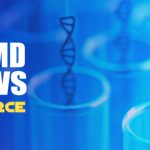
Canadian Research series
This video series of interviews features Canadian scientists who work on solutions for Duchenne muscular dystrophy (DMD). We wish to connect you – the DMD community – with these scientists. You’ll be delighted to learn about their motivation and dedication to this cause. In turn, they appreciate knowing more about our community, because we’re the people who are impacted by their discoveries. We hope that the interviews will help to foster an understanding of scientific concepts that aren’t always easy to grasp.
Meet the Gunning Group
We met and interviewed Patrick Gunning, Ph.D., who leads the Gunning Group, and one of his Ph.D. students, Yasir Raouf. Professor Gunning holds a Canada Research Chair in Medicinal Chemistry and is Director of the Centre for Medicinal Chemistry, Department of Chemical and Physical Sciences, at the University of Toronto’s Mississauga campus.
The Gunning Group is a team of scientists who pursue projects that focus on drug discovery. They work at the molecular level to design new drugs. Their goal is to develop better treatments and diagnostic options for devastating and under-explored human diseases. One of those diseases is DMD.
Dr. Gunning: “Yasir and myself are very motivated to try and see whether a STAT drug would work in DMD,”
What to know about STAT3
Their research targets STAT3, a protein that plays an essential role in cell regeneration. STAT3 is a transcription factor that controls or regulates, to some extent, how cells proliferate or grow and divide.
That’s very relevant to DMD, says Yasir Raouf. In DMD, muscle cell regeneration is poor. “Usually in humans, when your muscle cells die, they regenerate, and you get new muscles. If you have DMD, that regeneration is slow or nonexistent.”
If you can control STAT3, you can control the regenerative capacity of muscle cells, he believes.
What’s the timeline for development of this treatment?
Over the last decade, the Gunning Group developed a STAT3 drug that inhibits this protein. Over the next two years, they plan to test its effectiveness in mouse models. They will study how it affects muscle cell proliferation in mice over an extended period. For this work, they will collaborate with Dr. Michael Rudnicki, Professor and holder of a Canada Research Chair in Molecular Biology at the University of Ottawa.
Words of hope for the DMD community
Dr. Gunning has a message for families in the DMD community: “It’s very important to raise awareness for this disease.”
He urges families to highlight to the industry that people need help and new drugs to treat this orphan disease. “If money and efforts in research are put towards this disease, I’m very confident that academics like myself or industry can find something that will spare the lives of these children.”
Yasir Raouf hopes that we will soon live in a world that has cured DMD.“That’s what I hope for. That’s what I work for.”
More about the Gunning Group: http://www.gunninggroup.ca
Connect to our Canadian Research Series
An effective way to be informed and to receive our videos right out of the box is to sign up here for our newsletter.



